Related Research Articles
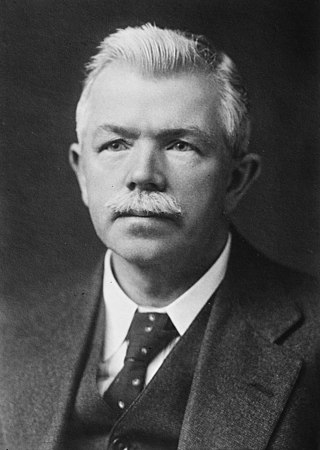
John Robert Clynes was a British trade unionist and Labour Party politician. He was a Member of Parliament (MP) for 35 years, and as Leader of the Labour Party (1921–1922), led the party in its breakthrough at the 1922 general election.
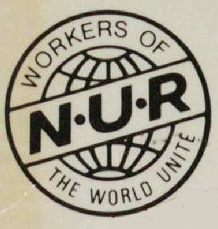
The National Union of Railwaymen was a trade union of railway workers in the United Kingdom. The largest railway workers' union in the country, it was influential in the national trade union movement.
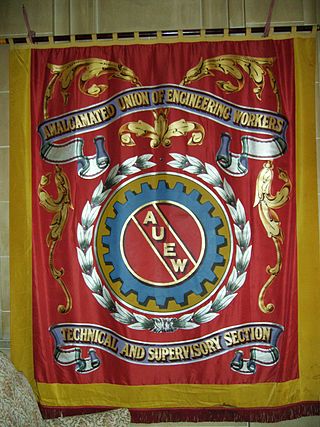
The Technical, Administrative and Supervisory Section (TASS) was a British trade union.

Fred Bramley was the second General Secretary of the British Trade Union Congress (TUC).

Sydney Arnold, 1st Baron Arnold was a radical British Liberal Party politician who later joined the Labour Party and served as a government minister.
Stanley Stephen Awbery was a British trade unionist and Labour Party politician who served as the Member of Parliament (MP) for Bristol Central from 1945 to 1964.
The 1942 Rothwell by-election was a parliamentary by-election held on 7 August 1942 for the British House of Commons constituency of Rothwell in West Yorkshire.

Sir James O'Grady, was a trade unionist and Labour Party politician in the United Kingdom. He was the first colonial governor appointed by the Labour Party from within its own ranks.

Arthur Moyle, Baron Moyle, CBE was a British bricklayer, trade union official and politician. As a member of parliament for nineteen years, he was principally known for serving as Parliamentary Private Secretary to Clement Attlee during Attlee's Premiership. He was also perennially lucky in the ballot for Private Member's Bills.
Hanley was a borough constituency in Staffordshire which returned one Member of Parliament (MP) to the House of Commons of the Parliament of the United Kingdom between 1885 and 1950. Elections were held using the first past the post voting system.

The 1921 Woolwich East by-election was a parliamentary by-election held on 2 March 1921 for the British House of Commons constituency of Woolwich East, in the Metropolitan Borough of Woolwich in London.
The Labour Party is a political party in the United Kingdom that has been described as an alliance of social democrats, democratic socialists, and trade unionists. The Labour Party sits on the centre-left of the political spectrum. In all general elections since 1922, Labour has been either the governing party or the Official Opposition. There have been six Labour prime ministers and thirteen Labour ministries. Since the 2010 general election, it has been the second-largest UK political party by the number of votes cast, behind the Conservative Party and ahead of the Liberal Democrats. The party holds the annual Labour Party Conference.
Richard Sargood was a British trade unionist and Labour Party politician. A long-serving local councillor in London, he sat in the House of Commons from 1945 to 1950.
The 1915 Merthyr Tydfil by-election was a parliamentary by-election held on 25 November 1915 for the British House of Commons constituency of Merthyr Tydfil in Glamorganshire, Wales.
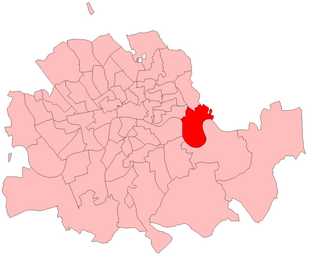
The 1914 Poplar by-election was a Parliamentary by-election held on 19 February 1914. The constituency returned one Member of Parliament (MP) to the House of Commons of the United Kingdom, elected by the first past the post voting system.
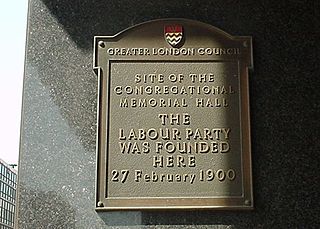
The Labour Representation Committee (LRC) was a pressure group founded in 1900 as an alliance of socialist organisations and trade unions, aimed at increasing representation for labour interests in the Parliament of the United Kingdom. The Labour Party traces its origin to the LRC's foundation.
This article lists the Labour Party's election results from the 1922 United Kingdom general election to 1929, including by-elections.
Several British members of Parliament have been sponsored by mining trade unions. Many were sponsored by the National Union of Mineworkers, its predecessor the Miners' Federation of Great Britain, and the local trade unions which preceded it.

Alfred James Bailey, was a British Trade Unionist and Liberal Party politician, serving as Lord Mayor of Sheffield.
This article lists the Labour Party's election results from the 1945 United Kingdom general election until 1955, including by-elections.
References
- 1 2 "Deaths: Will Rogers". Report of the Annual Conference of the Labour Party: 38. 1952.
- ↑ Craig, F. W. S. (1983). British Parliamentary Election Results 1918–1949 (3 ed.). Chichester: Parliamentary Research Services. ISBN 0-900178-06-X.